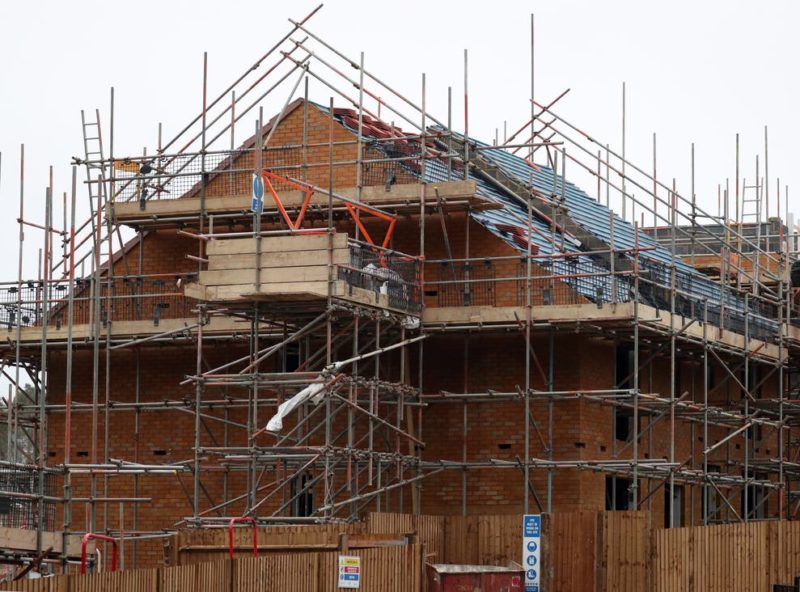Stock Drops as More Vendors Quit and Prices Bounce
PRESS RELEASE: The UK property market continues to adapt to a tougher lending environment and high inflation in the wake of the COVID property boom. This is according to Home.co.uk’s Asking Price Index for January, which is the 200th monthly index we have released.
Following last month’s shock price drop, we observe a small price bounce this month, which may surprise some observers. Moreover, prices rose in all English regions and Scotland, which is highly unusual for this time of year and attests to the resilience of home values despite rising borrowing costs.
A large part of this resilience is because property for sale remains scarce. The total sales stock fell slightly during December and is currently 17% below the 10- year average. The small reduction in stock during the slowest sales month of the year is a result of vendors withdrawing from the market. Speculative and opportunistic vendors are being purged from the post-boom marketplace. A further group of sellers with vacant possession will be opting to rent instead as the market continues to thrive, driven by scarcity and record rents. Supply of new instructions in December was restrained and certainly not indicative of a flood of panic sales.
Perhaps contrary to expectations, properties are not spending longer than usual on the market. While both the median and mean time on market for unsold property in England and Wales have increased, they have done so simply in line with seasonal expectations. Given the significant number of withdrawals from the sales market over recent months, low numbers of distressed sales and relatively low sales stock levels, residual demand is unlikely to be swamped by supply.
The region most likely to lead price growth in 2023 is Greater London. Relatively low stock levels coupled with low supply of new instructions (down 8% year-on-year) means that sales properties remain scarce.
Moreover, given that the median price of a flat remains 15% lower than in 2016, there’s plenty of room for upward pricing. In addition, when priced in US dollars, London property is offering a significant discount to foreign investors and rental yields are improving rapidly.
Persistent inflation and negative real mortgage rates will continue to support nominal house prices throughout 2023. The post-boom home price correction is occurring in the background while real growth remains firmly negative by either measure of inflation (CPI or RPI).
The rental market continues to thrive. High demand and persistently falling supply will continue to push up monthly rents in most regions in 2023, particularly in London.
The annualised mix-adjusted average asking price growth across England and Wales is now at 1.9%; in January 2022, the annualised rate of increase of home prices was 7.3%. 2022 was clearly a very sobering year for the UK housing market.
Asking prices bounced +0.6% following the steep decline registered last month. The mix-adjusted average rose despite a year-on-year increase in discounting of on-market properties (although compared to pre-COVID years, the number of discounted properties last month remains relatively normal for the time of year). Evidently, while scarcity persists, prices are unlikely to enter a period of freefall.
Headlines
- Asking prices across England and Wales recovered 0.6% during December following the shock drop of -2.4% in November. This fourth consecutive monthly fall brings year-on-year growth down to just 1.5%.
- Asking prices rose in every English region, Scotland and Wales during December.
- The number of properties withdrawn from the market soared in November, especially by vendors of upmarket properties.
- The total sales stock in England and Wales fell for the first time in 12 months (by 0.4%) due to a considerable number of vendors quitting the sales market.
- The supply of new instructions remains very moderate: 2% higher last month compared to December 2021 and 16% less than in December 2020.
- The Typical Time on Market for unsold property in England and Wales jumped in line with seasonal expectations, adding 16 days to make the median 94 days. This is just two days more than in January 2022 and seven days less than in January 2021.
- Eight English regions and Wales now show elevated median marketing times compared to January 2022. Greater London and Scotland both show a year-on-year reduction.
- The North West property market now leads in annualised regional price growth (5.8%), just ahead of Scotland at 5.6%.
- Monetary inflation dropped slightly to 16.1% (RPI ex. housing), suggesting that current real growth is around -15% year-on-year. Moreover, despite recent rises in mortgage costs, the real mortgage interest rate remains highly negative (around -10%) with respect to inflation.
- Rents across Greater London continue to rise overall (22% year-on-year) due to severe scarcity, but the pace is perhaps slowing slightly as affordability limits are reached. Such growth while property prices are stagnant means yields are improving rapidly.
- The current new growth leaders in asking rents are the boroughs of Brent, Hounslow and Lambeth (+37%, +37% and +35% annualised respectively).
Economic Crisis Leads to a Surge in the Cost of Insulating Your Home

PRESS RELEASE: The economic crisis has led to a surge in the cost facing those trying to better insulate their homes, a leading property association reveals today.
The National Association of Property Buyers (NAPB) warned wage rises and a surge in production costs – amounting to up to 20 percent – mean consumers now face having to find hundreds more pounds.
Spokesman Jonthan Rolande said the rise in price has created an “enormous” task for Ministers committed to improving energy efficiency ratings of homes to Band C by 2030.
Mr Rolande said one answer could be offering tax incentives to landlords in a bid to encourage them to provide better insulation to rental properties.
He says the NAPB would also back a national awareness campaign to highlight the scale of the issue.
His comments come only weeks after Ministers launched a new Government insulation scheme. But Mr Rolande believes this policy drive was “disastrously ill-timed.”
He said: “Whoever decided to launch that campaign in November has serious questions to answer. It was never realistic that rushing to insulate homes in late 2022 was going to work.
“The effects of increased post-pandemic demand, coupled with rising costs and wages in the sector has made insulating your home a far more costly job now than 12 months ago.
“Much like a homeowner in the Catch-22 situation of being unable to afford the upfront cost of proper insulation and so must bear long term higher bills, the government must now find more money than it otherwise would to prop up consumers via the Energy Price Guarantee Scheme.”
Outlining the scale of the challenge he continued: “ The task is enormous. There are more than 20m dwellings in the UK, and thanks to a mass building spree at the time, around 3m are pre-1900 and more complex to make energy efficient.
“There is also the problem of materials and labour. Insulation companies are booked months in advance and, in a sector where high wages and plenty of work are the norm, wages have rocketed. This increase has inevitably been passed on to the consumer. The work is skilled, dusty, hot in summer, cold in winter and the pool of potential employees has shrunk since 2016. The materials needed for insulating a home have increased by over 20%, adding to the cost.”
Pointing towards one solution Mr Rolande suggested: “The quickest and most beneficial fix would be within the private rented sector. Around 5m homes are let in the UK and landlords currently have little incentive to insulate, leaving hard-pressed tenants to foot the bill for heating. This is exacerbated by the fact that often, rental homes are within older, less efficient buildings. Often the poorest and most vulnerable people rent their home. Landlords are often amongst the wealthier in society. Why haven’t tax breaks to these landlords been offered to give an urgent reason to improve the homes of their tenants? The cost would be far less than a full subsidy and the work required to administer it, far less too.
“Well publicised clarity from the Government is now essential too, in order to explain precisely what the ambitions are and crucially, who will pay for them. Landlords need a clear reason to improve their investments.”
Before Christmas Parliament’s Environmental Audit Committee recommended a “war effort” to insulate homes in 2023 – saying officials had failed to take the opportunity “during the warmer months of 2022” when it became clear that consumers would be facing a huge rise in energy costs this winter.
The UK’s housing stock is among the least heat-efficient in Europe. While the Government has committed in theory to improve the energy efficiency ratings of homes to band C by 2030, the committee said this was was “vague and unspecific” without “appropriate interim targets” to measure delivery. The new Government insulation scheme launched in November, was criticised as being too little too late.
Energy firms, green activists and climate chiefs have united in support of a much bigger effort to urgently insulate millions of homes.
Proptech and Property News in association with Estate Agent Networking.
Andrew Stanton is the founder and CEO of Proptech-PR, a consultancy for Founders of Proptechs looking to grow and exit, using his influence from decades of industry experience. Separately he is a consultant to some of the biggest names in global real estate, advising on sales and acquisitions, market positioning, and operations. He is also the founder and editor of Proptech-X Proptech & Property News, where his insights, connections and detailed analysis and commentary on proptech and real estate are second to none.












